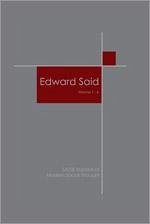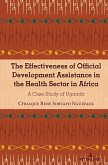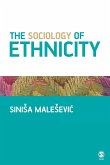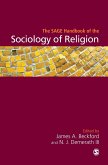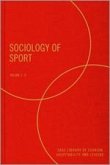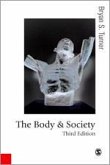By a wide measure of assent, Edward Said was one of the most important scholars examining society, politics and culture. A Palestinian-American, his life had been shaped by the cross-currents of race, globalization and nationalist violence. Said emerged as a leading figure in the dialogue between occidentalism and orientalism, making seminal contributions to our understanding of colonialism, postcolonialism and the responsibilities of criticism. He was one of the figures cited most frequently in the Social Science Citation Index, and one of the few, genuinely global, public intellectuals.
This exhaustive and unparalleled collection draws together the essential writings on Said's thought in a collection which any serious student of contemporary social thought will find indispensable. Planned and produced with a view to provide an accessible and reliable survey of all aspects of Said's voluminous writings, the collection is divided into four sections.
Section 1: Intellectuals and Critics: Positions and Polemics
Included here are reflections on some of the master-themes in Said's thought: the question of the displacement of the intellectual critic; the metaphysics of critical `homelessness', the challenges of exile; Said's relation to post-colonialism; and the important debates between Said, Aijaz Ahmad and Walzer. The challenging and controversial nature of many of Said's ideas are fully explored and the originality of his position on intellectual criticism and post-colonialism is properly acknowledged.
Section 2: Versions of Orientalism
Said's study of orientalism was arguably a break-through work, rapidly establishing him as a central cultural critic of modern times. Said's study was instrumental in opening up postcolonialism as an area of analysis. In this section the relevance of orientalism to the study of culture is examined, and the antinomies of orientalism are surveyed. Said was fully aware that he was writing about a contested subject when he published Orientalism. Here, the axes of contestation are brought together, and their power is compared and contrasted. The section includes discussions of the relevance of orientlaism to the study of Japan; Barthes and orientalism; China and orientalism; orientalism and the Third World; feminism, imperialism and orientalism; orientalism, the West and Islam and orientalism and technology.
Section 3: Cultural Forms, Disciplinary Boundaries
Said's interest in the politics of power and domination is richly explored in his thought on disciplinary boundaries. His work can be partly understood as an attack on certain forms of institutionalized epistemology, but always, with a conviction that the necessity of truth is the sine quo non of academic debate. This section provides readers with insights into the breadth and quality of Said's writings. It includes reflections on Said's Culture and Imperialism; nationalism, colonialism and post-colonialism; music, literature and emotion; Said and the study of history; Said, anthropology and ethnography; language and war; representations of domination through aesthetic forms; and multiculturalism, geography and postcolonial theory. What comes through most powerfully is the sheer expanse and inspired relevance of Said's thought to understanding the present and the relationship between history and the present.
Section 4: Theory and Politics
The questions that Said devoted himself to studying have very wide implications into the organization of self and society. Indeed, Said was an exemplary political writer, in as much as he never stints on his attempt to demonstrate the relevance of theory for practice. This section fully explores these aspects of Said's work. It includes discussions of colonialism and discrimination; the cult of theory
Hinweis: Dieser Artikel kann nur an eine deutsche Lieferadresse ausgeliefert werden.
This exhaustive and unparalleled collection draws together the essential writings on Said's thought in a collection which any serious student of contemporary social thought will find indispensable. Planned and produced with a view to provide an accessible and reliable survey of all aspects of Said's voluminous writings, the collection is divided into four sections.
Section 1: Intellectuals and Critics: Positions and Polemics
Included here are reflections on some of the master-themes in Said's thought: the question of the displacement of the intellectual critic; the metaphysics of critical `homelessness', the challenges of exile; Said's relation to post-colonialism; and the important debates between Said, Aijaz Ahmad and Walzer. The challenging and controversial nature of many of Said's ideas are fully explored and the originality of his position on intellectual criticism and post-colonialism is properly acknowledged.
Section 2: Versions of Orientalism
Said's study of orientalism was arguably a break-through work, rapidly establishing him as a central cultural critic of modern times. Said's study was instrumental in opening up postcolonialism as an area of analysis. In this section the relevance of orientalism to the study of culture is examined, and the antinomies of orientalism are surveyed. Said was fully aware that he was writing about a contested subject when he published Orientalism. Here, the axes of contestation are brought together, and their power is compared and contrasted. The section includes discussions of the relevance of orientlaism to the study of Japan; Barthes and orientalism; China and orientalism; orientalism and the Third World; feminism, imperialism and orientalism; orientalism, the West and Islam and orientalism and technology.
Section 3: Cultural Forms, Disciplinary Boundaries
Said's interest in the politics of power and domination is richly explored in his thought on disciplinary boundaries. His work can be partly understood as an attack on certain forms of institutionalized epistemology, but always, with a conviction that the necessity of truth is the sine quo non of academic debate. This section provides readers with insights into the breadth and quality of Said's writings. It includes reflections on Said's Culture and Imperialism; nationalism, colonialism and post-colonialism; music, literature and emotion; Said and the study of history; Said, anthropology and ethnography; language and war; representations of domination through aesthetic forms; and multiculturalism, geography and postcolonial theory. What comes through most powerfully is the sheer expanse and inspired relevance of Said's thought to understanding the present and the relationship between history and the present.
Section 4: Theory and Politics
The questions that Said devoted himself to studying have very wide implications into the organization of self and society. Indeed, Said was an exemplary political writer, in as much as he never stints on his attempt to demonstrate the relevance of theory for practice. This section fully explores these aspects of Said's work. It includes discussions of colonialism and discrimination; the cult of theory
Hinweis: Dieser Artikel kann nur an eine deutsche Lieferadresse ausgeliefert werden.

